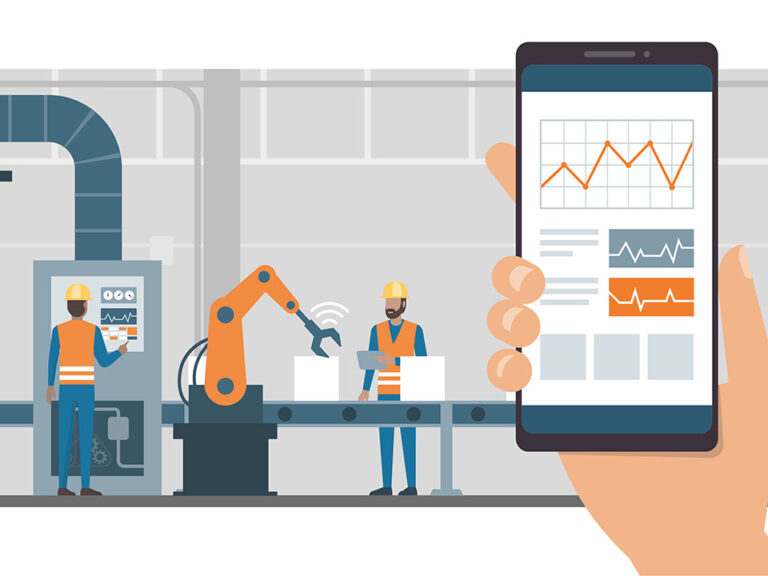Efficient Energy: Automation in Utilities.
In the fast-evolving utility sector, automation stands out as a transformative force, reshaping how utility companies manage energy production, distribution, and consumption. The integration of automation technologies within utilities is not just an option; it’s becoming a necessity to meet the growing demands for energy efficiency, operational efficiency, and sustainability. This deep dive into automation in utilities explores its impact, the technologies at the forefront, and the future it is steering us towards.
The Role of Automation in Modernizing the Utility Industry
Streamlining Operations and Enhancing Efficiency
Automation in the utility industry is revolutionizing traditional processes, from meter reading to customer service. By automating repetitive tasks, utilities can significantly reduce the need for human intervention, leading to cost savings and increased operational efficiency. Robotic Process Automation (RPA) and smart grid technologies allow for real-time monitoring and management of the grid, optimizing energy distribution based on demand and reducing energy waste. This operational streamlining extends to predictive maintenance, where utilities can proactively address potential issues with infrastructure before they escalate, ensuring a consistent and reliable energy supply.
Driving Energy Efficiency and Sustainability
The push for sustainability and reduced environmental impact has made energy efficiency a top priority for utility companies. Automation plays a pivotal role in this initiative by enabling better management of energy consumption and optimizing energy use across residential, commercial, and industrial sectors. Intelligent automation systems, powered by artificial intelligence (AI) and IoT devices, can analyze vast amounts of data to identify energy-saving opportunities, deploy renewable energy sources more effectively, and even adjust energy production in real-time to meet fluctuating demands without compromising on efficiency.
Enhancing Customer Experience Through Digital Transformation
The digital transformation that automation technologies have sparked redefines how utility providers interact with their customers in addition to internal processes. Advanced metering infrastructure and self-service options, empowered by automation, provide customers with detailed insights into their energy usage, enabling them to make informed decisions about their consumption patterns. Notifications and alerts about peak demand times, potential savings, and efficiency tips foster a culture of energy consciousness and can lead to substantial cost savings for both the utility and the end-users.
The Future of Energy: Automation at the Forefront
Adopting Automation for Competitive Advantage
In the highly competitive and regulated energy and utilities sector, automation offers companies a chance to gain a significant competitive edge. By reducing operational costs, optimizing energy production, and improving customer satisfaction, utilities can not only meet their current goals but also innovate and adapt to future energy needs. The deployment of electric vehicle charging stations and integration with smart home technologies are examples of how automation enables utilities to expand their services and embrace clean energy solutions.
Meeting Sustainability Goals with Intelligent Automation
The global energy landscape is shifting towards clean and renewable energy sources, driven by the urgent need for sustainability. Automation and AI technologies facilitate this transition by enabling more efficient use of renewable resources, minimizing energy waste, and contributing to the utility’s sustainability goals. Whether it’s through optimizing solar energy production or integrating wind energy into the power grid, automation ensures that these renewable sources play a significant role in the future energy mix.
Navigating Challenges and Embracing Opportunities
While the benefits of automation in the utility sector are clear, there are challenges to navigate, including cybersecurity risks, the need for significant investment in new technologies, and managing the cultural shift within organizations towards a digital-first approach. However, the potential of automation to transform the energy and utilities industry, reduce environmental impact, and lead to a more efficient and sustainable future makes these challenges worth addressing.
Conclusion
Automation is transforming the utility sector, driving efficiency, sustainability, and better customer experiences. As utility companies continue to embrace these technologies, they are not only optimizing their current operations but also laying the groundwork for a future where energy is more sustainable, reliable, and accessible.
We encourage our readers to explore further articles on our blog for insights into how technology is shaping the energy and utilities sectors and beyond. Discover the advancements, innovations, and trends that are defining the future of energy.
Frequently Asked Questions
How does automation improve operational efficiency in utilities?
Automation enables utility companies to streamline operations, reduce manual processes, and enhance real-time monitoring and management of the energy supply.
What role does automation play in energy efficiency?
Through intelligent analysis and management of energy use, automation technologies help utilities optimize consumption and deploy renewable resources effectively.
Can automation help utilities reduce costs?
Yes, by automating repetitive tasks and optimizing energy production and distribution, utilities can achieve substantial cost savings.
How does automation impact customer experience in the utility industry?
Automation provides customers with detailed insights into their energy usage, self-service options, and personalized notifications, improving engagement and satisfaction.
What challenges do utilities face in implementing automation?
Utilities must navigate cybersecurity risks, the costs of adopting new technologies, and the cultural shift towards digital transformation.
How does automation support the use of renewable energy in utilities?
Automation and AI enhance the integration and efficiency of renewable energy sources into the power grid, supporting sustainability goals and the transition to clean energy.






